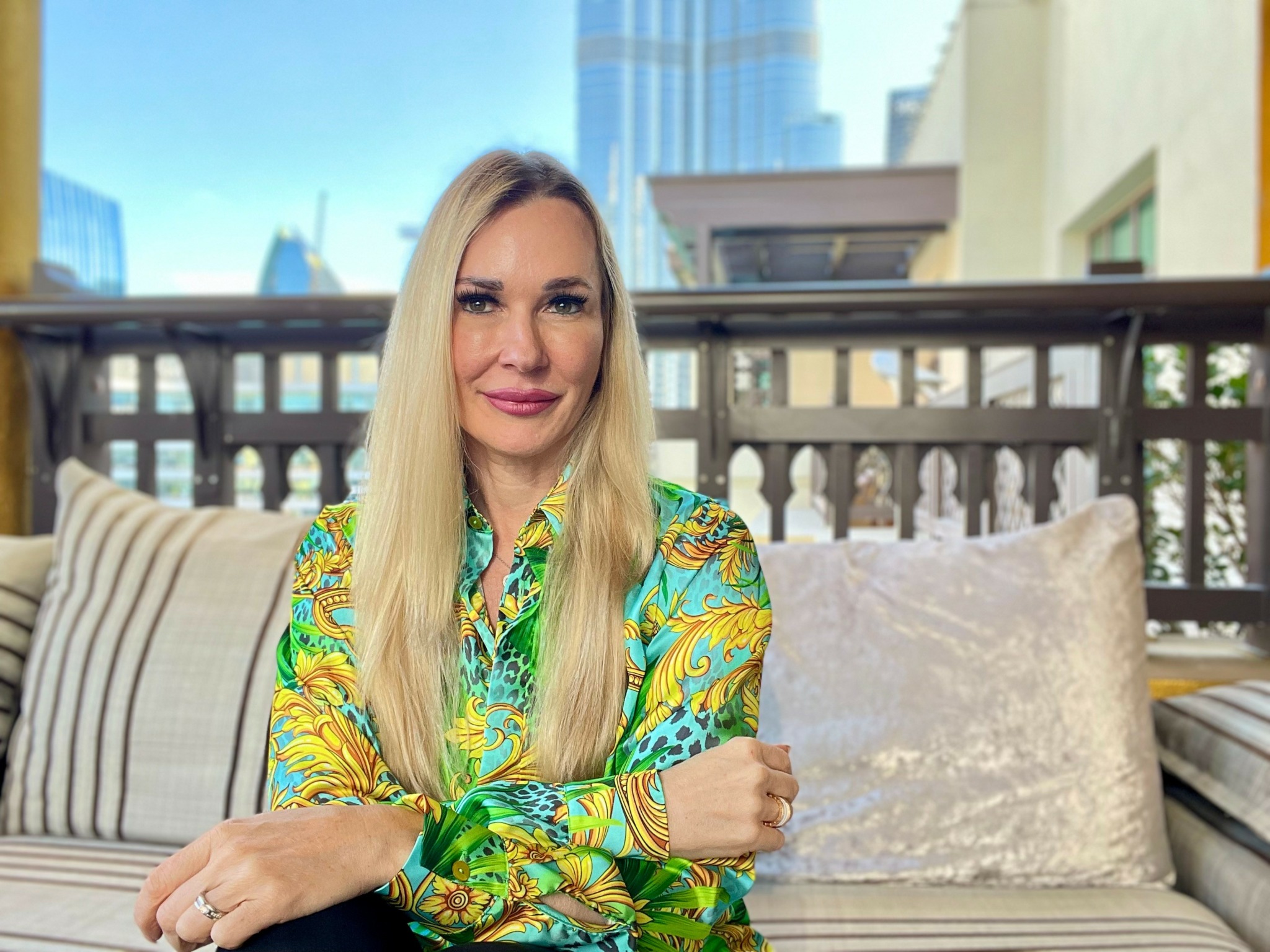Alright – so today we’ve got the honor of introducing you to Maude Favre. We think you’ll enjoy our conversation, we’ve shared it below.
Maude, appreciate you joining us today. Setting up an independent practice is a daunting endeavor. Can you talk to us about what it was like for you – what were some of the main steps, challenges, etc.
For over 18 years, I have been practicing hypnosis as a form of mental wellness therapy. In a world where mental health has become a top priority, my journey reflects the fascinating evolution of a practice that is often misunderstood.
When I began my career in 2007, hypnosis was frequently seen as entertainment—an enigmatic art linked to magic and manipulation. Yet I always believed in its transformative power. At the time, it was challenging to convince people of its benefits; many viewed it as a curiosity, even a kind of trickery.
Today, however, the perception of hypnotherapy has shifted dramatically. Hospitals and scientific communities now recognize its effectiveness, and top-level athletes openly share the benefits they derive from it. This change in mindset has allowed a much broader audience to embrace hypnosis as a powerful tool for enhancing mental well-being.
I now work alongside medical practices, psychologists, and companies, offering coaching focused on stress management, mental health, and smoking cessation. But perhaps what has changed most is the relationship I have with my clients. I no longer need to persuade them of hypnosis’s value. Instead, they come to me with full trust, knowing we will work together to support their well-being.
Today, my clients understand that they are not just attending a session—they are embarking on a journey toward greater mental balance.
Through my expertise and passion, I continue to open doors to deeper self-awareness, proving that hypnosis is far more than a stage act—it is a genuine path to healing.

Maude, before we move on to more of these sorts of questions, can you take some time to bring our readers up to speed on you and what you do?
⸻
For readers who may not be familiar with my work, I am a graduate and instructor hypnotherapist and complementary therapist with over 18 years of experience, helping individuals improve their mental and emotional well-being through evidence-based, holistic approaches.
My journey began in 2007, at a time when hypnosis was still widely misunderstood—often seen more as a form of entertainment than as a legitimate therapeutic method. Despite this, I was deeply convinced of its transformative power and committed myself to mastering the discipline. Over the years, I have expanded my expertise to include kinesiology, psychogenealogy, and anatomy-pathology, enabling me to support clients facing a wide range of challenges in a truly integrative and personalized way.
Today, my work focuses on helping individuals overcome issues such as anxiety, stress, burnout, low self-esteem, insomnia, and smoking cessation. Whether someone is seeking relief from chronic emotional distress or a breakthrough in personal development, my goal is always the same: to help them reconnect with their inner resources and move toward greater balance, resilience, and clarity.
What sets my approach apart is the quality of the relationship I build with each client. My sessions are not just about symptom relief—they are about creating long-lasting, internal change in a space of trust and collaboration. People come to me with confidence, knowing they are entering into a therapeutic process rooted in professionalism, empathy, and deep respect.
My services are available both in person and online, supporting clients worldwide. Expanding this accessibility is central to my work—ensuring that effective mental wellness tools are easily available and within reach of everyone.
In line with that vision, I have also developed a mobile application called Hypnosis Maude Favre, of which I am especially proud. The app offers guided hypnosis sessions that help users address common challenges such as stress, sleep issues, self-confidence, quitting smoking, weight loss, and more—anytime, anywhere. It serves as an extension of my work and empowers individuals who may not yet be ready for one-on-one sessions, or who simply want ongoing support between appointments.
Hypnotherapy is increasingly gaining the recognition it deserves—from the scientific and medical communities to elite athletes and executives who rely on it for mental performance and emotional balance. I am proud to be part of this evolution, helping to bring hypnosis into the mainstream as a powerful, credible, and compassionate tool for healing and transformation.
Ultimately, my work is about providing people with the tools and guidance they need to move forward—toward greater well-being, self-awareness, and personal freedom.
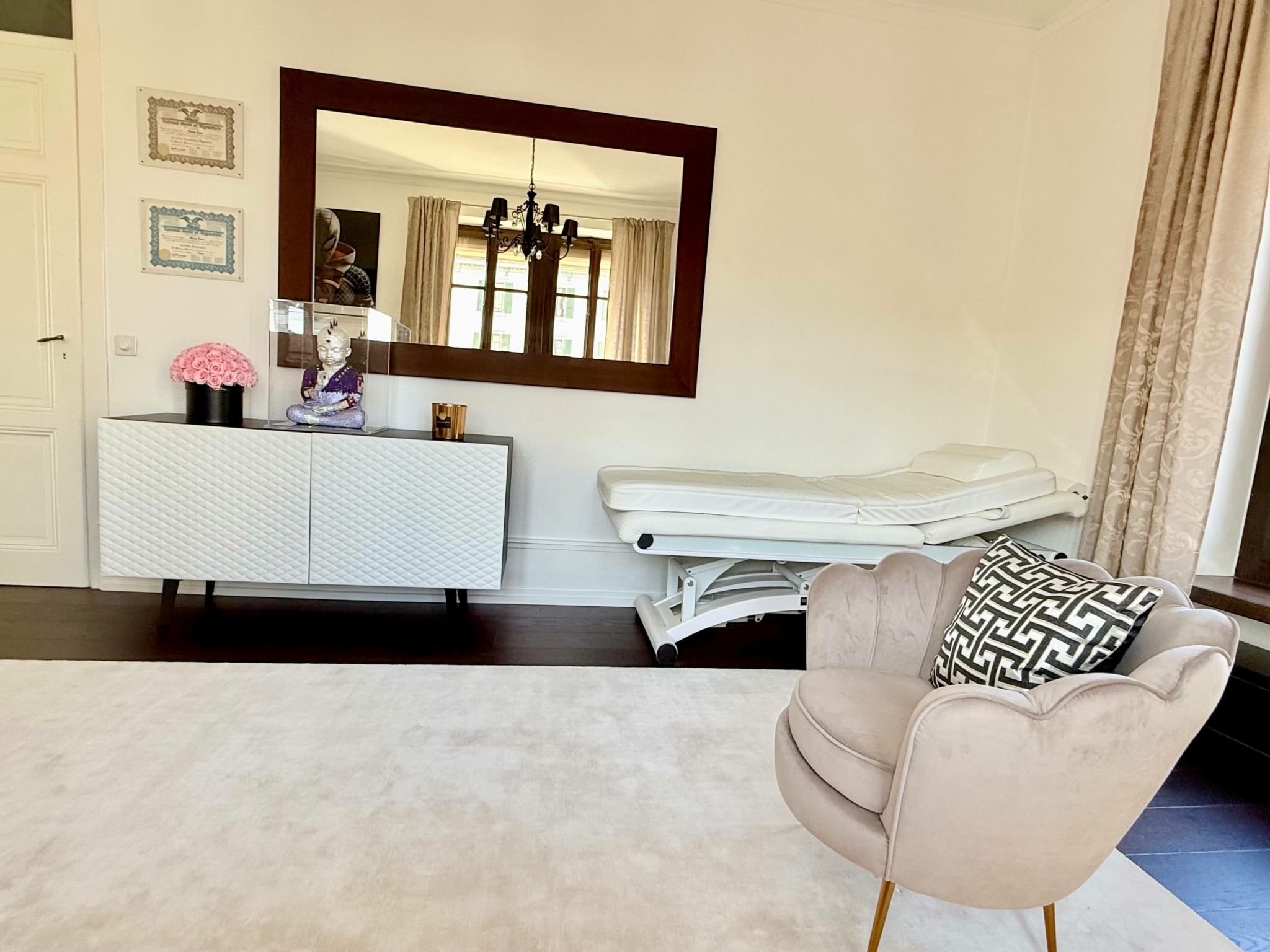
Putting training and knowledge aside, what else do you think really matters in terms of succeeding in your field?
Beyond training and knowledge, I believe that true success in my field comes from a combination of deep intuition, emotional intelligence, and the ability to be fully present with each client.
While a solid education and technical skills are essential, they’re not enough on their own—especially in therapeutic work. Each person who walks through the door brings a unique emotional landscape, often layered with unspoken fears, hidden memories, or internalized narratives. To truly help someone, you must be able to sense what isn’t being said. That’s where intuition plays a central role.
But intuition is only truly effective when combined with empathy, active listening, and a genuine respect for each client’s pace and process. Clients need to feel safe—not judged or rushed—in order to engage in deep, transformative work. Cultivating that sense of safety and trust requires presence, patience, and an inner stillness that invites openness.
Ongoing self-awareness and personal development are also essential. As therapists, we can only guide others as far as we have gone ourselves. Staying grounded, continually working on my own emotional clarity, and remaining humble in the face of each unique human story—these, I believe, are the qualities that make a real difference.
So, while certifications and diplomas may open doors, it’s the human qualities—intuition, compassion, and presence—that keep those doors open and allow true healing to happen.
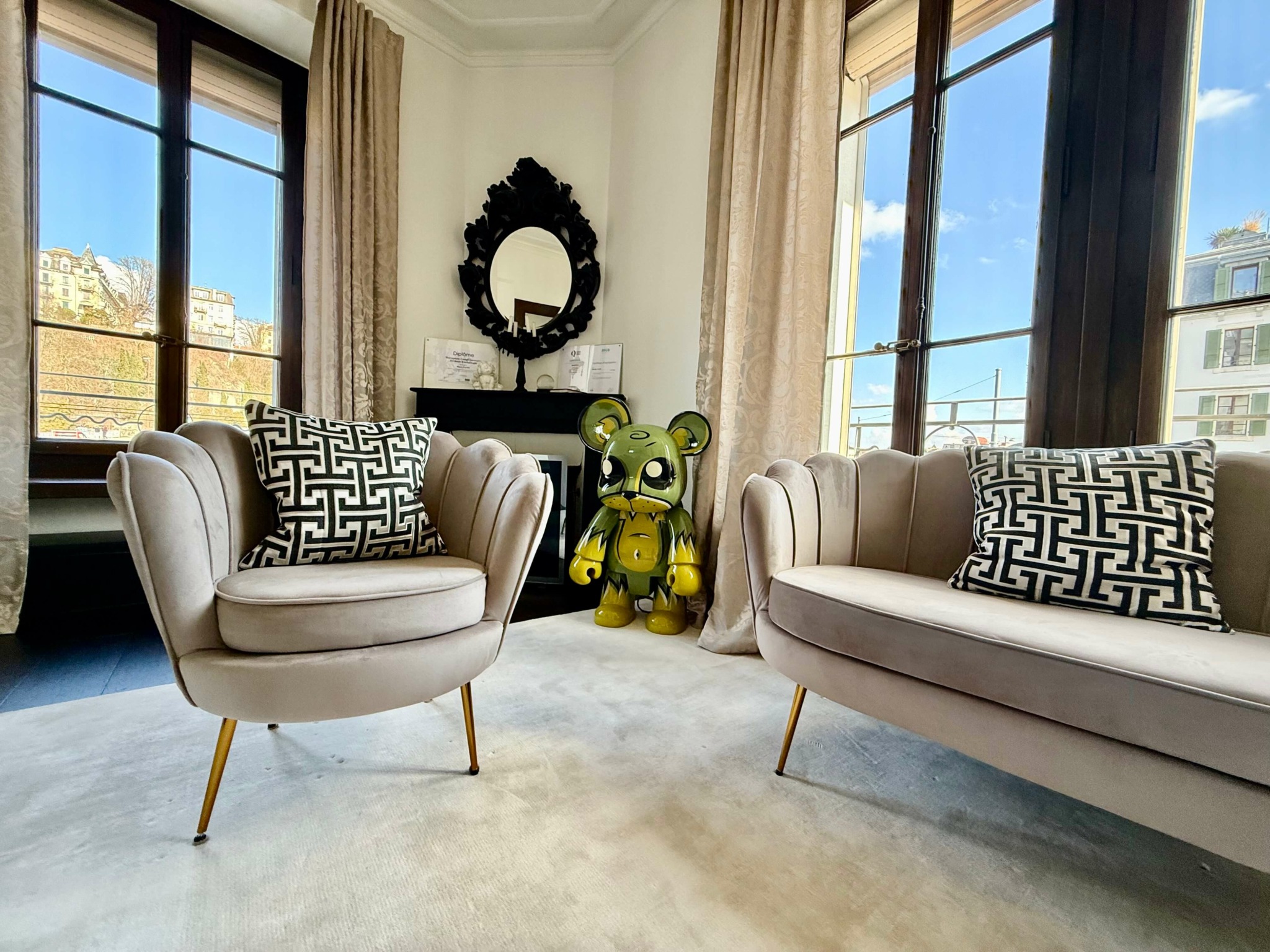
What’s been the most effective strategy for growing your clientele?
The most effective strategy for growing my clientele has been trust—and letting results speak for themselves.
In this kind of work, word of mouth is incredibly powerful. Many of my clients come through personal recommendations, after someone close to them has experienced real, lasting change. That kind of organic growth, built on trust and authentic results, has always meant more to me than any advertising strategy.
Over time, I’ve developed strong relationships with doctors, psychiatrists, and other healthcare professionals who refer clients to me. These collaborations are established on mutual respect and a shared understanding of how complementary therapy can support mental and emotional health.
More recently, offering online sessions and launching my mobile app “Hypnosis Maude Favre” have helped me expand my reach internationally, making my services accessible to people wherever they are. But at the heart of it all, the most effective strategy has always been staying true to the quality of my work and building real connections—one person at a time.
Contact Info:
- Website: https://maudefavre.com/en/
- Instagram: https://www.instagram.com/hypnosemaudefavre?igsh=N2JmM3ZycTh1YWI4&utm_source=qr
- Facebook: https://www.facebook.com/share/1AueeLcJnb/?mibextid=wwXIfr
- Linkedin: https://www.linkedin.com/in/maude-favre-02778860?utm_source=share&utm_campaign=share_via&utm_content=profile&utm_medium=ios_app
- Youtube: https://www.youtube.com/@Hypnosemaudefavre
- Other: Apple Store : https://apps.apple.com/ch/app/hypnosis-with-maude-favre/id1220010842?l=en-GB
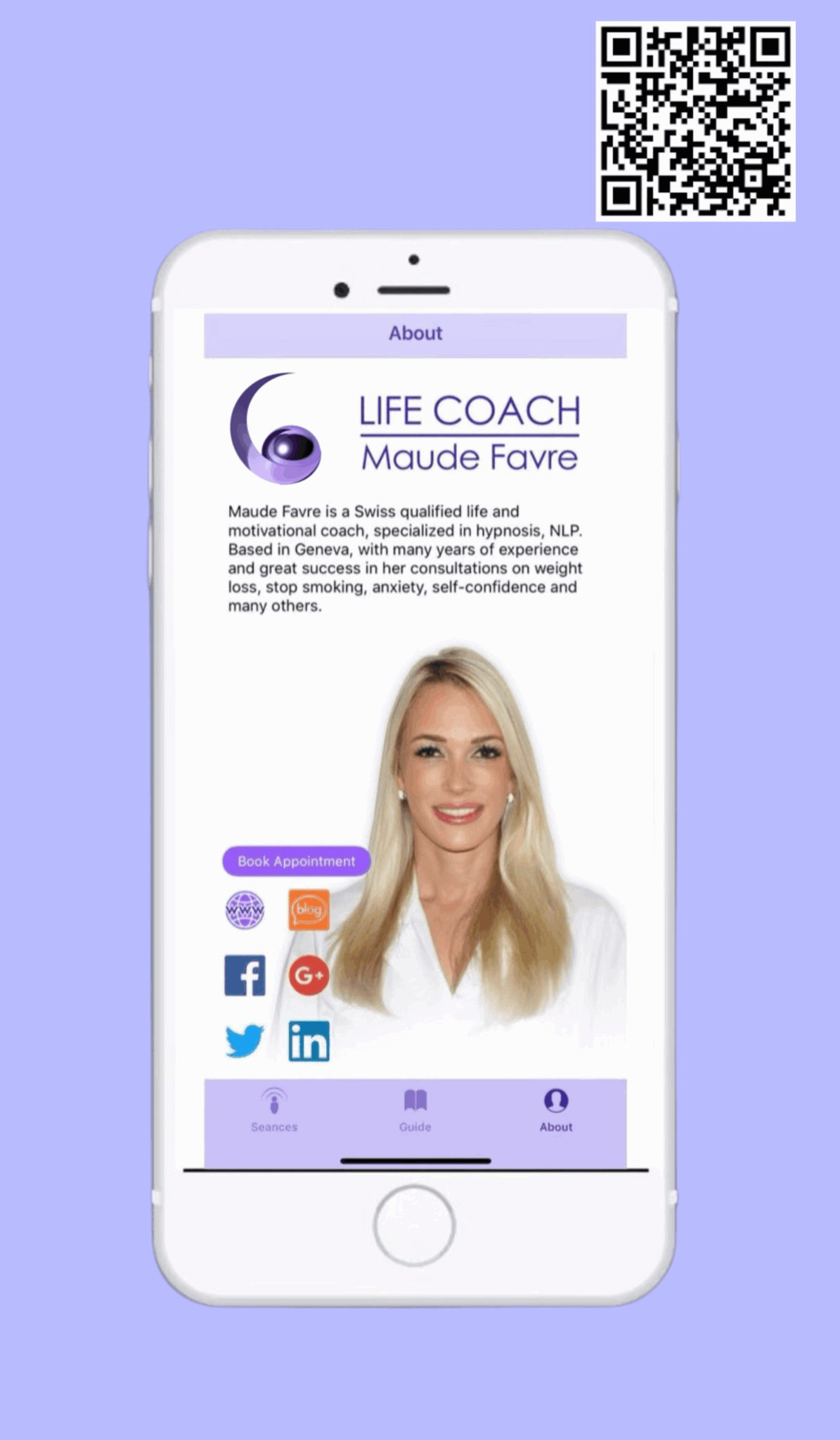
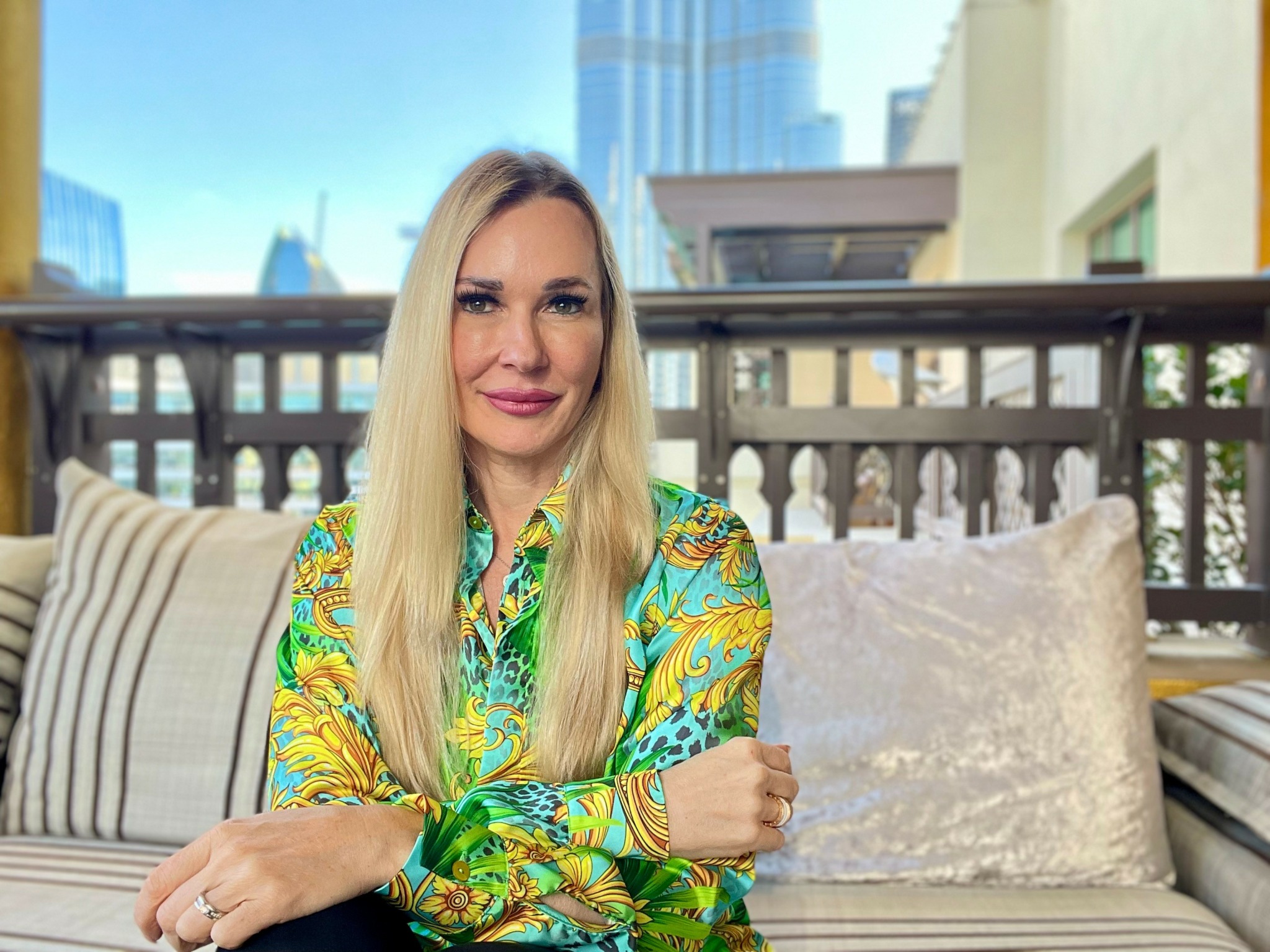
Image Credits
Maude Favre – Hypnosis and Kinesiology – Geneva – Switzerland


